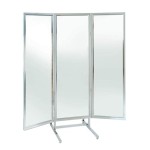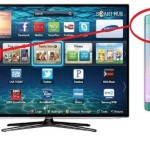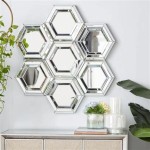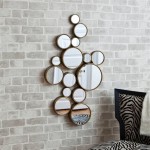Should You Have a Mirror Facing Your Bedroom Door?
The placement of mirrors in a bedroom often sparks debate, particularly regarding the tradition of avoiding positioning a mirror directly opposite the door. This practice stems from various cultural beliefs and principles of feng shui, an ancient Chinese philosophical system of harmonizing individuals with their surrounding environment. Understanding these perspectives, along with practical considerations, can help individuals make informed decisions about mirror placement in their bedrooms.
Feng shui principles suggest that placing a mirror directly facing the bedroom door can deflect positive energy, or "chi," entering the room. Chi is believed to flow through doorways like breath, nourishing the space and its occupants. A mirror positioned opposite the door is thought to immediately reflect this energy back outwards, preventing it from circulating within the room. This can potentially lead to feelings of restlessness, disrupted sleep, and reduced vitality, according to proponents of this philosophy.
The concept of chi and its flow is central to feng shui. Practitioners believe that careful arrangement of furniture and objects can optimize the flow of chi, promoting harmony and well-being. Mirrors, while useful and often decorative, are believed to possess reflective properties that can influence this energy flow, either positively or negatively depending on their placement. Therefore, positioning a mirror strategically within a bedroom is considered an important aspect of creating a balanced and harmonious environment.
Beyond feng shui, several cultural traditions hold similar beliefs about mirrors facing doors. Some cultures associate mirrors with portals or gateways, and placing one opposite a door is believed to create an opening for negative spirits or energies to enter the room. While these beliefs may vary across cultures, the underlying theme of disrupting energy flow or inviting unwanted influences remains consistent.
Practical considerations also play a role in the decision of mirror placement. A mirror facing the bedroom door might startle individuals upon entering, especially in low-light conditions. The unexpected reflection can create a momentary disorientation or a feeling of unease. This is particularly relevant in smaller bedrooms where the proximity of the door and mirror is heightened.
Furthermore, the reflection of the door itself in the mirror can create a visual disruption within the room. Depending on the size and style of the mirror and the door, the reflection can dominate the visual space and make the room feel less balanced or aesthetically pleasing. This is a matter of personal preference and depends on the overall design and layout of the bedroom.
Conversely, there are arguments against the strict adherence to this traditional belief. Some interior designers argue that strategically placed mirrors can enhance the perceived size of a room, particularly in smaller spaces. A mirror reflecting light from a window can brighten a room and create a sense of spaciousness. In these cases, the benefits of increased light and perceived space might outweigh the concerns related to feng shui or cultural beliefs.
Additionally, the reflective properties of mirrors can be utilized to create interesting visual effects and enhance the aesthetic appeal of a room. A mirror can reflect artwork, decorative objects, or architectural features, adding depth and dimension to the space. In these instances, the placement of the mirror becomes a matter of artistic expression and personal preference, rather than strict adherence to traditional beliefs.
Ultimately, the decision of whether or not to place a mirror facing a bedroom door is a personal one. Weighing the principles of feng shui, cultural beliefs, practical considerations, and aesthetic preferences can help individuals make informed choices about mirror placement that align with their personal values and design goals. Considering the potential impact on energy flow, visual harmony, and personal comfort can lead to a bedroom environment that is both functional and aesthetically pleasing.
Alternatives to placing a mirror directly opposite the door include positioning the mirror on a perpendicular wall, using a smaller mirror, or covering the mirror with a curtain or screen at night. These options can address potential concerns related to energy flow or nighttime startles while still allowing for the practical and aesthetic benefits of mirrors in the bedroom.
Careful consideration of the size and shape of the mirror is also crucial. A large mirror facing the door can amplify the potential effects described earlier, while a smaller, more strategically placed mirror might have a less pronounced impact. The overall layout of the bedroom and the positioning of other furniture should also be taken into account to create a harmonious and balanced environment.

Why Having Your Mirror Facing Bed Is Bad Feng Shui

The Feng Shui Of Mirror Placement In Your Bedroom City Mattress

Why Mirror Facing The Bed Is Bad Feng Shui

21 Feng Shui Mirror Placement Rules And Tips For Your Home Fengshuinexus

Why Having Your Mirror Facing Bed Is Bad Feng Shui

38 Feng Shui Mirror Placement Tips Complete Expert Guide

Why Mirror Facing The Bed Is Bad Feng Shui

Your Door Can Be This Cool Mirror Makeup Grwm Bedroom

Best Mirror Position In Bedroom As Per Vastu Designcafe

Three Good Reasons You Should Never Have A Mirror Facing Your Bed Daily Mail








